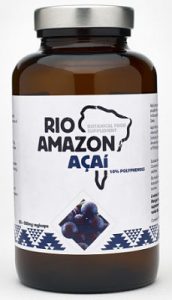Nowadays, with almost every natural food (and health food item) getting referred to as a ‘superfood’, it provokes an inevitable question – just what is a superfood really supposed to be; what should qualify a food as a superfood?
Well, perhaps a good example of a superfood is the likes of a blueberry. Why? Because blueberries aren’t just low-caloric but also highly antioxidant in their content. And, really, like any superfood probably should be, blueberries offer up an impressive helping of raw nutrition, as well as many different phytochemical and flavonoid compounds (in other words, the aforementioned antioxidants).
Happily enough, there are many more foods than just blueberries that reputable experts recognise as superfoods. The majority of them tend to be bursting with antioxidants, ensuring they have the potential, once consumed, to help combat diseases and illnesses and, yes, slow the aging process, while a good number of them may also be beneficial for cardiovascular health and normalising the body’s blood sugar.
Three terrific superfoods
So, while there are a large number of known superfoods, here are five of the best known and best respected:
- Mulberries – research has discovered these rich-tasting berries offer up a large helping of anthocyanins (powerful compounds with strong antioxidant properties), as well as being of particular benefit to the body’s blood sugar
- Goji berries – great for stimulating the immune system (they promote the increase of white blood cells), these berries also offer high levels of antioxidants and may help in offsetting specific degenerative illnesses.
- Coconut water – a naturally-occurring beverage that’s so revered for its health-giving properties among those in the know that they refer to it as ‘nature’s sports drink’, coconut water is rich in electrolytes and carbohydrates, which means it’s great for rehydration and replenishment following physical activity (i.e. playing sports or working out).
Additionally, research suggests that it may be capable of boosting L-arginine levels in the body. What’s so good about this? Well, L-arginine is an amino acid that, it seems, can aid cardiovascular health and anxiety response. Plus, coconut water appears to promote lipid levels in the body, which suggests it may just help in fighting against heart disease.
Superfood supplements
Fair enough; it’s all very well and good listing the very best superfoods in existence, but that doesn’t make it any easier to come by them both affordably and regularly. However, your task here might be aided by seeking out reputable, well-reviewed superfood-featuring supplements.
At The Finchley Clinic, a whole section of our products is dedicated to superfoods and, as our loyal customers would expect, we only stock such supplements whose superfood-content is processed as minimally as possible and, thus, resembles its natural state as much as possible. In which case, our superfood supplements – you can be assured – all comprise valuable vitamins, minerals and antioxidants, just like their naturally-occurring sources do. Here are three such examples:
Acai – an antioxidant superfood, which is naturally rich in anthocyanins, vitamins, minerals, amino acids and the Omega 6 and 9 essential fatty acids.
Green Magma (Barley Grass Powder) – available in powder form, this alkalising superfood offers in excess of 20 enzymes, as well as chlorophyll and many vitamins, minerals and amino acids; ensuring it may aid in both digestion and detoxification.
Spirulina – a phyto-plankton superfood that contains gamma linolenic acid (GLA), vitamin B12 and trace amounts of vitamins B3, B5, B6 and E, as well as biotin, inositol and folic acid.

